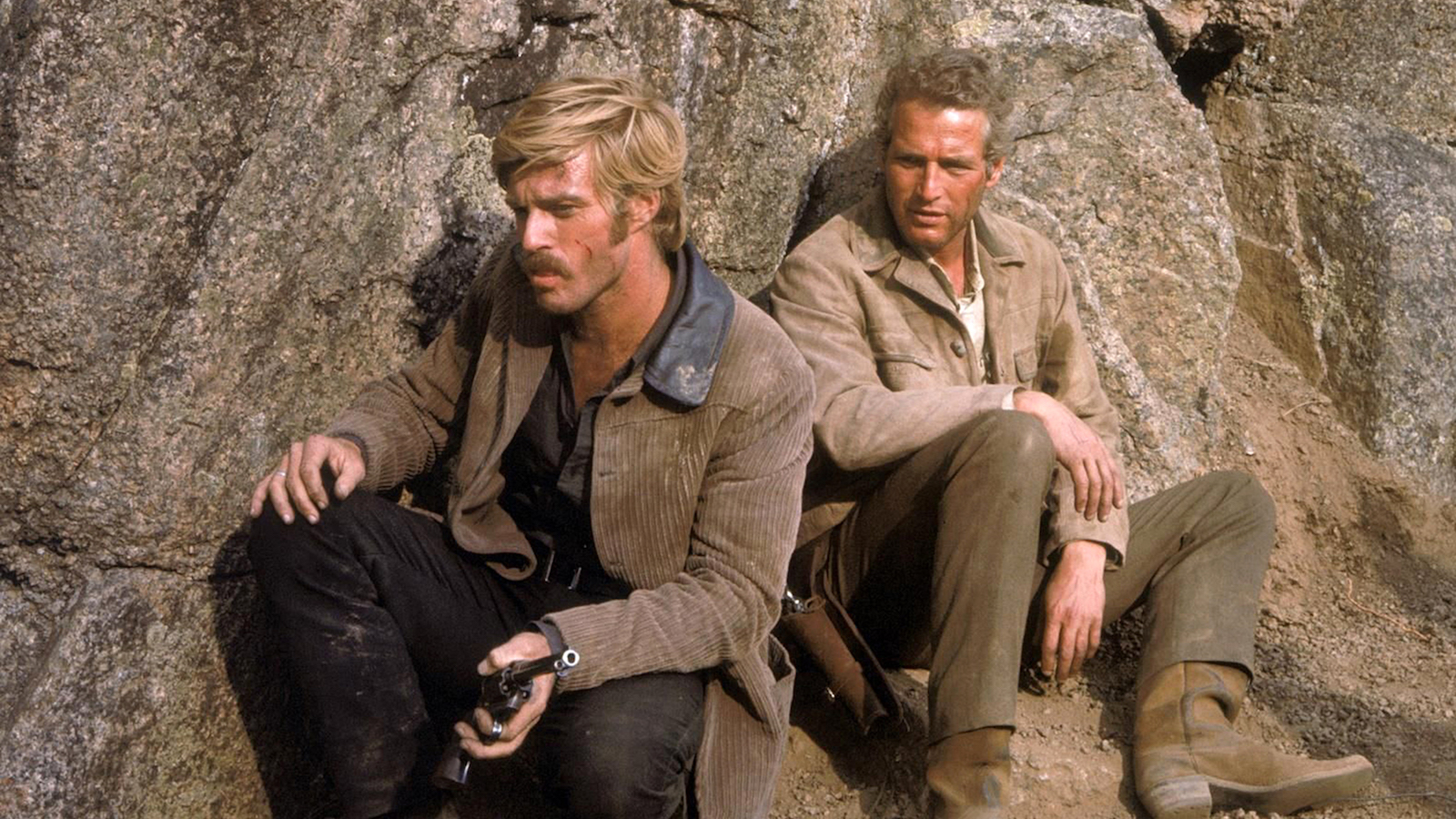Who Are Those Guys?
The middle of George Roy Hill’s famous Butch Cassidy and the Sundance Kid is essentially an extended chase scene. The authorities—whoever they might be, the US government, the Union Pacific Railroad, or the increasingly powerful banks—have gotten fed up with Butch and Sundance robbing their trains, so they set up the infamous Hole in the Wall Gang. In the middle of a train robbery, a sinister locomotive approaches. A group of riders jet out of a boxcar and begin chasing Butch and Sundance. Experts at alluding the law, the duo try all their tricks: sending Butch’s horse off in the opposite direction as a decoy, riding through riverbeds, traveling over rock on foot. Nothing can shake their pursuers, prompting Butch and Sundance to ask after each foiled attempt to elude them: "Who are those guys?"
Indeed, this question seems even more appropriate as one that currently haunts the American psyche after 9/11/2001. While the dust was still settling from the collapse of the twin towers, ordinary Americans expressed their outrage and consternation by calling for blood—revenge—a face to represent the evil. "Who are those guys?" Who are those for whom life means nothing? After 2001 terrorist attack on American soil, I watched as many of those around me went nuts. Flag waving zealots marched in the streets calling for revenge—they didn’t care who we bombed—they just wanted someone to pay. The Bush Administration heard their pleas, and we have been paying for decisions made on this irrational bloodlust ever since, and we’ll be paying for it for years to come. As will the innocents of Iraq, Afghanistan, Pakistan, Iran, and other countries who will feel the fallout of these wars.
Who are those guys? has invaded the national consciousness. George W. Bush was distracted by questions of national, now "Homeland," security, and he made us feel his distraction. He seems to have done more for the terrorists than 9/11 ever did. His administration was preoccupied with terrorism’s very real threat to ’Merica. Every speech was loaded with language crafted not to assuage American fears, but to heighten them. What better way to keep power and justify tighter government control and waning freedom for citizens? Anyone who challenged his administration was labeled anti-American, an elitist, a traitor. The American intelligentsia was silenced, and anyone who was different was vociferously challenged, silenced, ostracized, and sometimes even killed: homosexuals, Arab-looking Americans, Muslims, French wine.
’Merica is now a nation of paranoids and xenophobes, shutting down their borders, distrustful of anything that doesn’t sound ’Merican, self-righteous and proud of their ignorance and simplicity, and scared shitless about even what may live next door. Even though ’Mericans are much more likely to die from drowning in their bathtubs than from from a terrorist attack, many of them can’t get the paranoiac who are those guys? out of their heads.
One solution is more guns. Not only did gun sales increase after 9/11, but also after Bush left office. Perhaps it’s more appropriate to say when Obama was elected. Some articles suggest buyers worry that their rights will change under this "socialist" president. I think it has more to do with the same irrational fear I’ve been writing about: Who is that guy? Isn’t that the very question that Republicans employed to seed fear and doubt about Obama? He’s to be feared: his whole name is Barack Hussein Obama; he’s a Muslim; he’s not an American citizen; he’s an elitist; he’s educated; he’s not white. Not one of us.
Guns seem to symbolize ’Merican fear, irrationality, and paranoia. Yet, they also are integral to our past and the building of our nation. Since the bad guys—those who want to take away our life, liberty, and private property—have guns, the good guys must have guns. And the good guys can have guns because they are . . . well, good!
Ironically, Butch and Sundance were heroes in Hill’s film, yet real-life outlaws. Robert Leroy Parker (“Butch Cassidy”) and Harry Longabaugh (“Sandance Kid”) performed the longest string of successful train and bank robberies in American and Old West history with the other members of the “Wild Bunch.” While known for being non-violent, the Wild Bunch were responsible for several murders during their careers as thieves and outlaws. If caught in the states, they certainly would have been hanged for their crimes. Yet, in Hill’s film, Butch and Sundance are heroes—how could Newman and Redford be anything else? Look at these handsome Americans. Who would doubt it? We know exactly who they are.
Maybe we need to turn the question on ourselves, instead of looking outward. Perhaps we Americans need to look in the mirror and ask ourselves: who are these guys?

